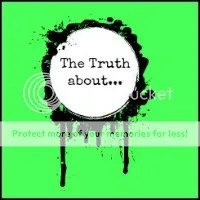What do you do when faced with having to do something you fear?
a) Fear? What’s that? I fear nothing!
b) Run away!
c) Hide and hope it will go away.
d) Face it head on – show it I’m not scared!
e) Do everything you can to best prepare for everything it may present you with.
Really, I suppose your response is going to depend on the situation. For example, I am terrified of spiders so faced with a huge one of those my response would be b. Run away, fast. I’m someone who thinks people who call the emergency services to help them deal with an eight-legged fiend in their home are perfectly reasonable.
Anyway, this is not a post about my arachnophobia. The fear I am facing is returning to work next Tuesday. Saying it’s a fear sounds strange. It’s not like it’s something that makes me jump in terror like seeing a big spider scuttle across the floor.
I have been away from work since early February, 2014. That’s a very long time. In that time, Hugo was born, Hugo lived, Hugo died. I had to recover from my illness. I had to find support to help me deal emotionally with my illness, Hugo’s too-short life, and his death. It took me a very long time to find that support, and in that time I developed coping strategies that helped me survive but that were not conducive to being out in the big, bad world. Those coping strategies involved being in control. Staying at home, usually; it felt safer. Controlling who I saw, spoke to and when.
Finally, the support I needed transpired. Another tough journey, scabs torn off, wounds reopened. But progress made.
An acknowledgement that any progress is good. Self-compassion, self-care. I have to be kind to myself. There is no cure for grief. This is forever.
Eventually, finally, I felt as ready as I ever will be to return to work.
And what is there to fear, rationally? It’s only work. It’s not like I’m in the armed forces, in the firing line. I work in a hospital, and not on the front line.
The problem? I will be returning to work with a couple of new companions: grief and anxiety. They can take up lots of energy, needle you with self-doubt, taunt you by sending you in to a spin of a deep, dark, mood.
Frustratingly, they do not understand rational thought. Telling myself there is nothing to fear does not remove the fear.
So, I am focusing on option e. Doing everything I can to prepare.
Being compassionate towards myself for those times when grief or anxiety take over. Making time for self-care so I have more positive energy to help cope with the dark moods. Teaching myself to resist negative energy, to focus on what it is important, to know my own limits.
Remembering that one step, one day at a time is all I need to do.
Remembering that I have dealt with so much worse in the past year. And survived.
Remembering that I work with so many wonderful, kind, compassionate people, many of whom I am proud to call friends.
Remembering that by remembering my self-care and self-compassion tools, I can remain in control of many things.
Remembering that some people will not know what to say, meaning that they may look at me like I am a leper, ignore me, or say the ‘wrong’ thing. That does not make them bad people. I have handled all sorts, I can handle this too.
Remembering that moving forward with my life does not mean moving on from Hugo. Hugo is still with me. In my heart, in my mind, his legacy in everything that I do.
Remembering that this is a landmark moment marking the end of the most beautiful, the most harrowing, the most wonderful, the most heartbreaking, the most eye-opening, the most challenging period of my life.
Remembering that while I wish with every cell in my body Hugo was still with me, I am the stronger for everything that has happened.
Preparations for facing the fear of what is next. But knowing that surely, what is next can never be as bad as what has come before.
___________________________________________________________
Word of the Week: Preparation
Prompt word: Fear


























